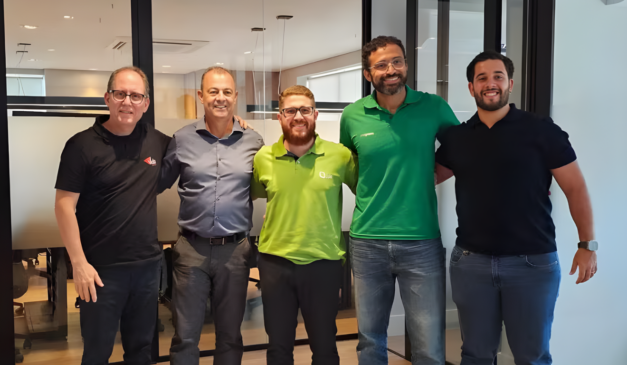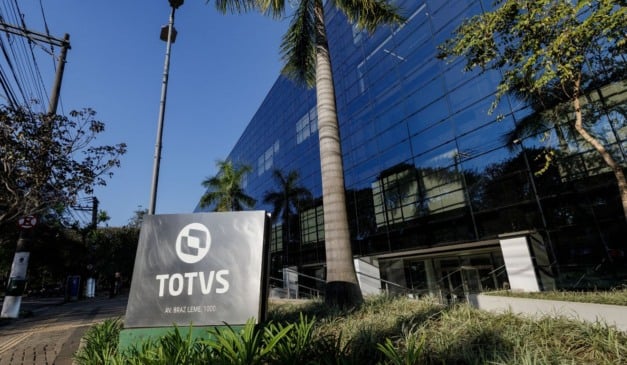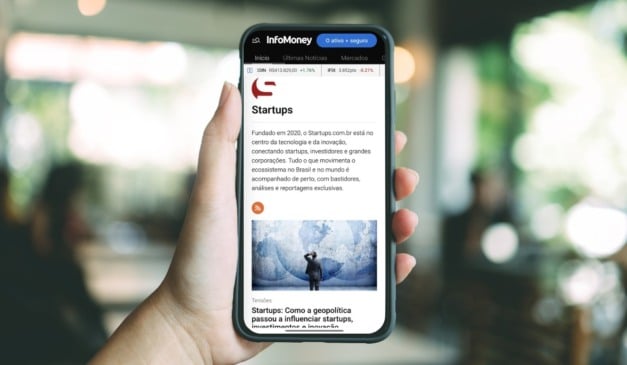
While levels of unemployment in Brazil remain high – 12.4 million people in the country are out of work, according to the Brazilian Institute of Geography and Statistics – many of those who are lucky enough to have a job in 2022 are getting ill. Burnout syndrome, caused by the high levels of stress related to work issues, is an increasingly frequent reality in the corporate space, and startups focused on the mental health area are looking to address the problem.
According to the International Stress Management Association, Brazil is second only to Japan in terms of the number of people affected by occupational mental breakdowns. In general terms, the mental health situation of the Brazilian population is precarious: according to the World Health Organization (WHO), the country ranks fifth in the world ranking of depression, and leads the list of countries with the highest rates of people with anxiety.
Add to this the fact that in 2022, the new WHO classification came into force, making burnout a chronic occupational condition, included in the International Code of Diseases. As a result, occupational risks increase whereby employees exhausted due to work reasons can sue companies – and employers may have to pay compensation to workers, if they lose in court.
According to Ana Carolina Peuker, CEO and founder at Beetouch, burnout is a phenomenon that has always existed, but was accentuated by the pandemic crisis, with the lack of balance and boundaries between personal and work life, “technostress” (in which people needed to learn technology skills quickly to respond to the crisis, as in the case of teachers) and hyperconnectivity.
In addition to these factors, there is grief, illness and financial losses stemming from the current situation, according to Peuker: “All of this has generated an unprecedented demand from an emotional point of view: everyone has a clear feeling of having exceeded all their limits and depleted their resources, leading to burnout, which is complete exhaustion.”
At work, burnout has a series of repercussions, according to the psychologist: individuals with the “burnt engine” problem experience a deterioration of their mental health state, a process that includes depersonalization. “Work plays a crucial role in terms of who we are. But if the person is totally exhausted, they start to distance themselves and emotionally disconnect from work that was previously motivating,” explains the founder. This process is usually followed by a reduction in self-efficacy, and the person starts to feel unqualified and unproductive.
The increase in cases and the developments relating to burnout introduced an opportunity to advance the debate around the subject, the Beetouch founder points out. “I’ve preached a lot in the desert, and now I see an increasing openness to this discussion, with managers recognizing that this has an impact on the business, realizing that ESG issues are closely linked to mental health. This is very important to prompt action.”
At the heart of the (burnout) matter
Paradoxically, while technology can contribute to worsening a burnout situation, healthtechs use it to help companies and people address the issue. “With the pandemic, the mental health problem became more latent in companies, and many started to worry about the issue. On the other hand, if we think there are approximately 18 million companies in Brazil, a few hundred are doing something different, while the others are dragging their heels on the subject”, says Tatiana Pimenta, CEO and founder of online therapy platform Vittude.
The startup has a base of 700 psychologists, and a portfolio of around 300 companies, including contracts such as cosmetics firm Grupo Boticário and Banco do Brasil, one of the largest Brazilian banks, which offers the service to more than 90,000 employees nationwide.
Although the topic is gaining momentum among decision makers, Pimenta notes that Brazilian firms are still trying to treat the symptoms rather than the source of the problem. “A lot of our work with clients has been around helping them prevent the employee from getting ill, with education and supporting care more comprehensively,” says Tatiana.
The startup has reinforced the discourse that employers have a social function and, therefore, should be aware of the signs that can lead to mental exhaustion. In 2021, Vittude carried out a survey in partnership with Opinion Box, with statistics pointing to a decline in the state of mental health in the Brazilian population. For example, more than half of respondents (51.3%) said sadness increased in the pandemic, as did stress (64.1%) and anxiety levels (62.2%).
During Corporate Mental Health Week, an event produced by Vittude in January to discuss the strategic role of human resources departments in promoting mental health in work environments, Tatiana highlighted the responsibility of companies regarding the issue: “Everything must be thought of for employees, because they are the ones making a difference [within companies].”
To address burnout in its customers, the startup uses a scale to understand symptoms and identify cases within the workforce. Once instances of burnout are identified, employees are advised to seek professional help. In addition, Vittude also promotes debates and promotes awareness campaigns aimed at prevention.
The use of technology to tackle burnout also provides the possibility of data-driven human resources management, in which companies have greater visibility of the mental health state of their employees. With its predictive psychological assessment platform, Beetouch helps companies make decisions based on occupational risks and indicators.
In the analysis produced by the startup, which serves around 50 clients such as the Brazilian Bar Association and trucking firm Randon, several psychosocial factors linked to the work context are taken into account. Variables include the increase in work demands that are not compatible with career development, excessive overtime, abuse and prejudice. In addition, the company started offering psychological care since the beginning of the pandemic, with data-informed therapy sessions.
“Our work is aimed at tracking the causes of mental illness and causes that can lead to burnout. With this analysis and priority actions to hand, companies can measure risks, mitigate existing problems and work on prevention so as not to generate labor problems”, Peuker points out.
Training leaders to accelerate adoption
Another company that is thriving in the current scenario of growing demand for mental health services is Zenklub. The corporate emotional care platform saw a 151% increase in consultations in the first half of 2021 compared to the same period in the previous year. Burnout is among the top reasons users seek help – in the top 3 are anxiety, relationship problems, and the search for self-knowledge.
Founded in 2016, Zenklub brings together 700 professionals including psychologists, psychoanalysts, meditation facilitators and coaches, as well as content that includes audio journeys dealing with topics such as sleep, and podcasts featuring personalities focused on mental health topics.
Leaders are more sensitive to the issue of burnout and are beginning to realize the possible reputational and brand risks if they don’t make inroads in this area, says Rui Brandão, CEO and founder of the healthtech. “People are looking for more purpose in their jobs and that includes an analysis of how potential employers are treating their employees. In parallel, we as consumers are also interested in how organizations deal with human beings.”
To accelerate the understanding of phenomena such as burnout, Zenklub also places its bets on data and has developed a corporate wellbeing index that considers variables relating to daily working life, such as autonomy and control, as well as people’s relationship with stress. The tool measures the wellbeing of workers on a scale from 0 to 100, with a minimum ideal index set at 78 – in terms of burnout, the index in Brazil is 58.75, which rings alarm bells. In addition, the company launched a leadership training program to accelerate managers’ understanding of mental health issues.
“Culture and emotions are intangible things, and if we provide elements so that companies can make this more tangible, I believe we will encourage faster adoption [of mental health platforms]”, says Brandão. Among the company’s corporate clients are names like Ambev, Loggi as well as Avon and The Body Shop owner Natura & Co.
According to Brandão, mental health indicators are more severe in Brazil when compared to developed countries, for reasons such as high unemployment and lack of security. On the other hand, the Portuguese doctor notes that Brazilians are more open in relation to talking and acting on emotional issues.
“People in Europe tend to seek medication much more than trying to identify the root cause of problems: Portugal, for example, leads in terms of consumption of psychotropic drugs in the region”, says the entrepreneur, adding that the Brazilian openness in relation to digital services is another positive point, which also means there is a fertile ground for healthtechs focused on mental health in the country.
In addition to focusing on patients and companies, the use of technology to support professionals working through the platform is on Zenklub’s roadmap. “We are talking about a group of more than 500,000 professionals, who often spend between 8-10 hours a day dealing with human pain, illness and challenges. It is a very lonely job, and we will work towards supporting these professionals.”







